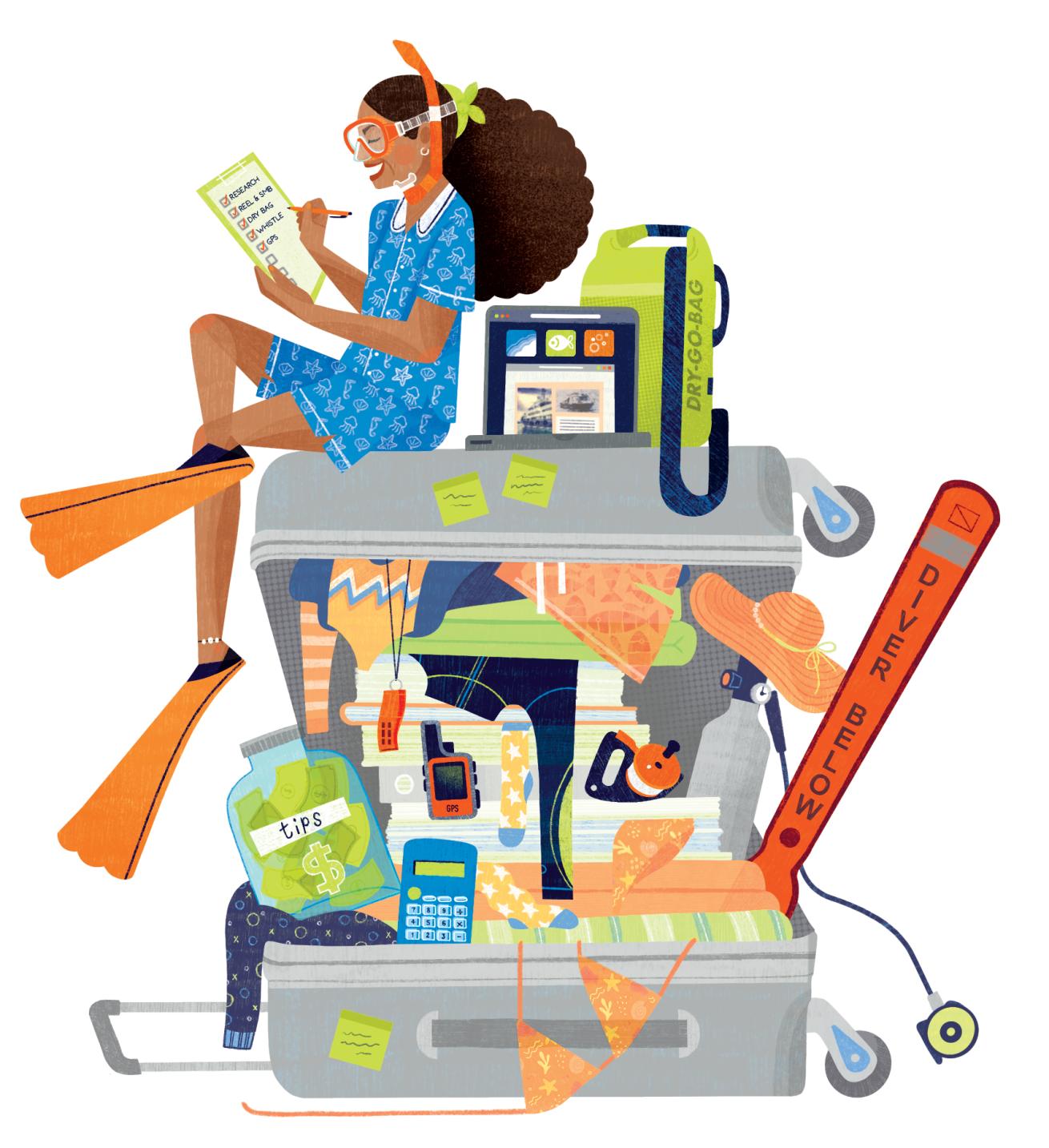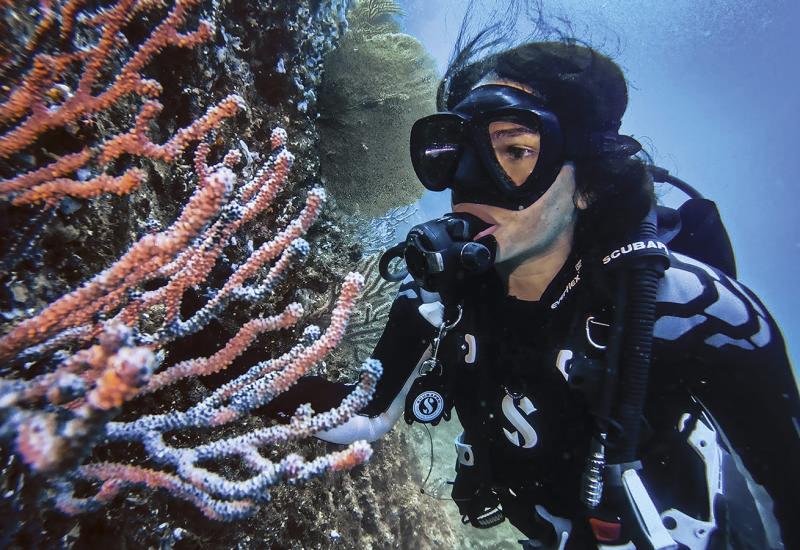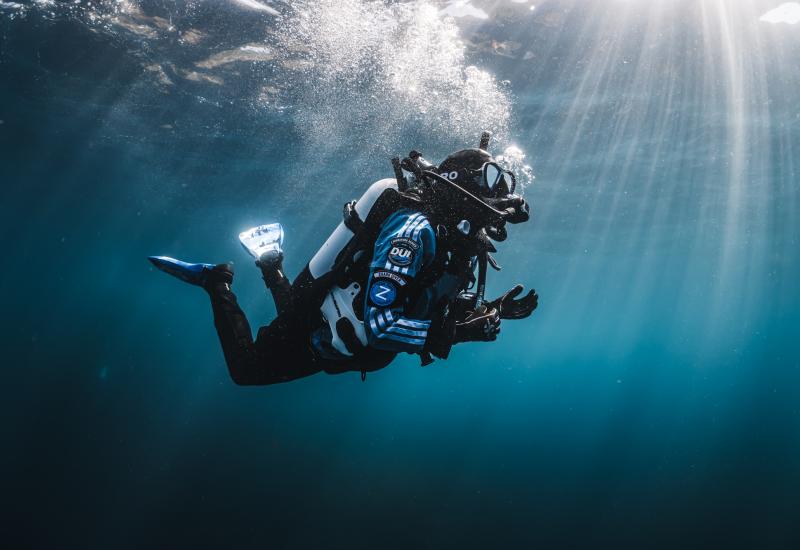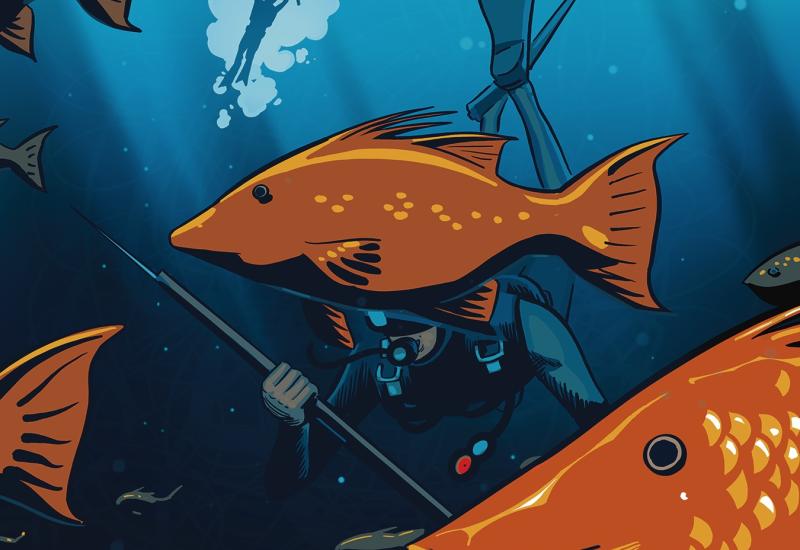Ask Annie: How Do I Prepare for My First Boat Dive?

Illustration: Lauren Rebbeck
Dear Annie,
I am a newer diver and don't want to make faux pas during my first dive trip. How should I conduct myself on the dive boat? Should I tip my guides?
—Newbie
Dear Newbie,
Regardless of the kind of charter, be it a day boat, liveaboard or friend’s boat, all dive boats give passengers two briefings: a safety briefing for the vessel and dive procedures followed up with a dive site briefing. Most reputable commercial operators have abundant information on their website, social media or client info packs. Before you go, research to find as much information as possible. This will make you more comfortable once out on the boat.
When boat diving, you’ll either dive from the main boat or, if on a liveaboard, a tender—a smaller boat like a Zodiac that takes you from the liveaboard to the dive site and picks you up after. The PADI Boat Diver specialty course will introduce you to boat lingo and help you understand more about this kind of diving.
Talk to your local dive shop about all the continuing education courses available. Depending on your destination, consider downloading the PADI manuals for Drift Diver, Underwater Naturalist, Fish Identification or one of the other dozens of courses available. Even if you cannot do the associated dives locally, the information will serve you well and you can complete the dives on your trip.
Related Reading: How to Be a Better Underwater Navigator
Stay Connected! Keep up to date with the latest in diving and underwater adventure. Join PADI Club today for access to exclusive events, dive meet ups and a subscription to Scuba Diving magazine.
No matter the dive vessel, three pieces of personal safety gear all divers need to carry and know how to use when boat diving include a personal GPS locator device, a reel and large SMB, and a loud whistle or signaling device. Many inexperienced divers purchase equipment like a reel and SMB because it’s on the required equipment list without becoming proficient at using them. Work with your local dive shop to get comfortable with SMB deployment before heading out on a trip.
Like many gear-intensive sports, when boat diving, you need to be extremely organized and develop a structured routine. There’s limited room on a dive vessel and you do not want to be the newbie who leaves a trail of equipment or belongings everywhere. A small dry bag or two for the dive deck or tender lets you keep personal gear together. Always analyze your tank and check your gear before the dive briefing.
The boat crew and dive professionals are in service roles. Always be prepared to give a cash tip that is between 10 to 20% of the cost of the charter. I’ve worked on boats in many capacities from second captain, dive guide, deck crew to underwater photographer, hostess and chef. We work as a team and every operation has a way to divide tips fairly among crew. Crews work sunup to sundown, and liveaboard dive crews work around the clock to maintain a safe and fun environment. I tend to tip on the high side because I know everything that happens behind the scenes of a dive operation. When going out with friends on their boat, I don’t necessarily tip… but I always bring good food or drinks to share and contribute to gas and operational costs!
I look forward to hearing back from you after your trip. Just think, you will not be a newbie anymore! Be safe and have fun.
Related Reading: What to Do If You Don't Like Your Dive Guide
Ask Annie
PADI Instructor Annie Crawley answers your most pressing questions about dive etiquette, training qualms and gear analysis with zero judgment and a whole lot of lived experience.
Have a question for Annie? Send to [email protected] with the subject "Ask Annie."










